Owner to Breeder, Part 1
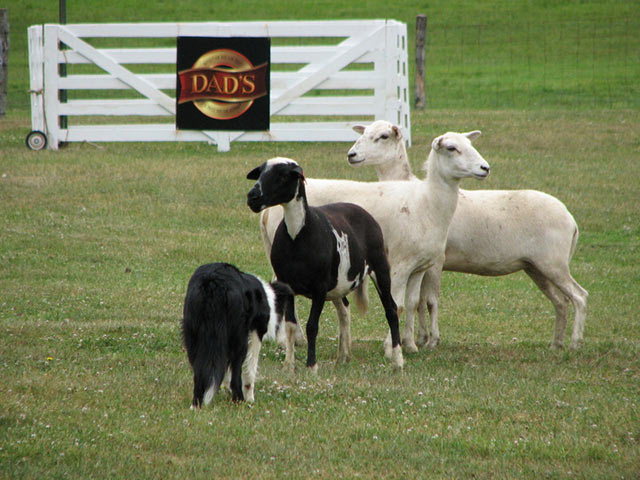
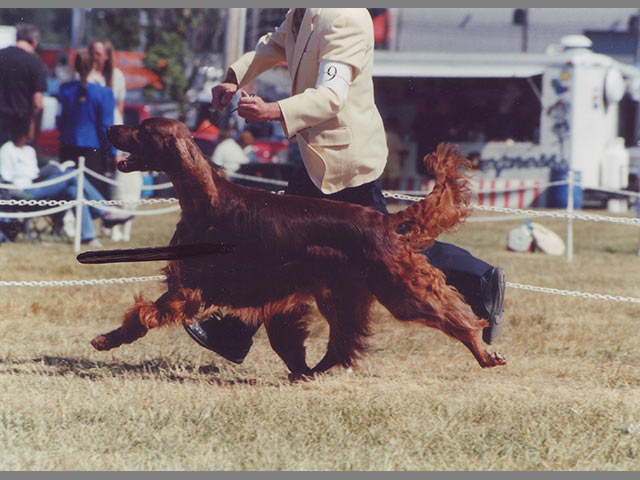
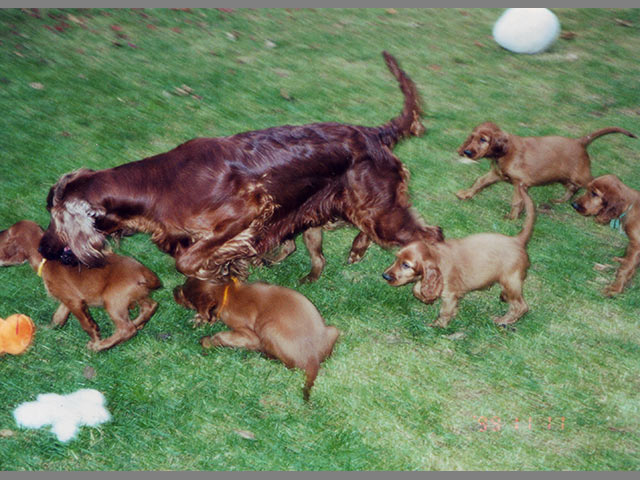
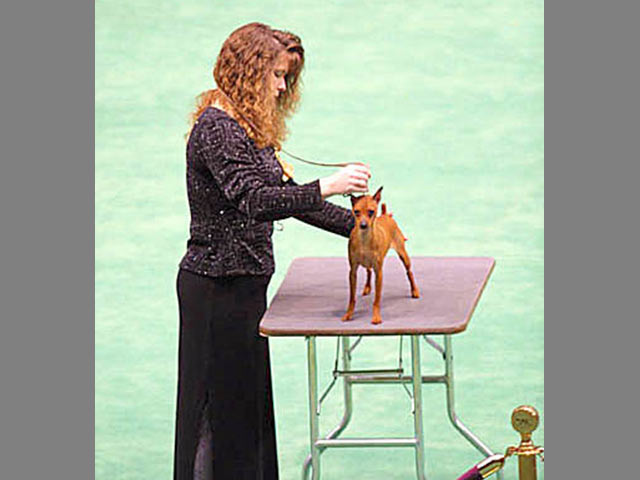
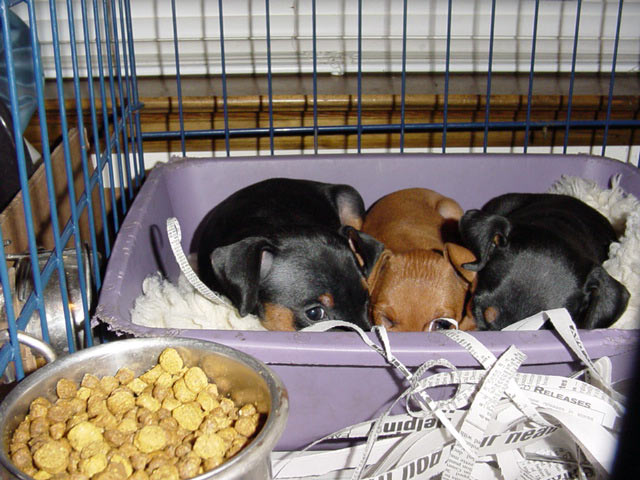
In just a few weeks, he maps out a plan to create a fantastic line of Collies that will assure his dog's traits are passed along.
John's story is representative of a growing number of people across the country who feel they are ready to make the transition from dog owner to dog breeder. Experienced breeders say it is wonderful to have new people excited about enhancing the health, beauty, and winning ways of a particular breed. They openly share their instructive experiences, insights, frustrations, and honest mistakes.
A Philosophy Check
Barbara Williams has bred German Shepherd Dogs for decades. She was fortunate to own one of the most memorable German Shepherds of the 20th century, Man O' War, or Red for short. More than 30 years since Williams last took Red into the show ring, she vividly recalls her experiences. "He had a beautiful, red coat I've never seen before or since, and a superb nature. I received requests from people all over the country to breed to him, and he sired many successful dogs." In his prime, Red died of bloat. Williams has made it her mission to breed dogs free of this disease.
Williams is happy to share her opinions: "After we're gone, people might not remember us. But they'll see the legacy of the dogs we breed many generations ahead. When we're lucky enough to have top dogs, we are given a sacred trust. It's our responsibility to carry that forward. People must realize the power in their hands when they breed."
Fran Sloughfy got her first Irish Setters in 1976, and has bred several champions. But she stumbled towards greatness. "When I decided to have Irish Setters, I didn't have much money. But I knew the standard – happy dogs, rollicking personality, ears wrapping around their noses – so I went to a backyard breeder and looked at a litter. I chose the one wagging his tail the hardest and with ears dragging on the ground."
That first dog, Sloughfy admits, had very little in common with the standard beyond these superficial traits, and did not win in the show ring. Her second dog did better in the ring, but still had numerous faults.
Sloughfy was determined to get a perfect Irish Setter. She looked for puppies that were just right, and could not find any, so she decided to breed her own dogs. She traveled long distances, at great cost, to find a stud for her goals. "I talked to everyone I knew and asked who was the best stud dog. I went to shows and studied the dogs, evaluated what I heard. Then I fell in love with one stud, a top Irish Setter in the country."
You Like Dogs. But How About People?
Loving dogs is an obvious requirement for a breeder. However, you cannot realize your vision of breeding great dogs unless you also enjoy people – your buyers.
Sloughfy says selling dogs is what she worries about most. "It's not looking over the puppies 24 hours a day for weeks, or rushing them to the vet when there's an emergency. Finding appropriate buyers, that's the most challenging, difficult, and draining part."
Michele Basye has bred Miniature Pinschers and American Toy Fox Terriers for more than a decade. "I can't stand selling my dogs," she admits. Gaining more experience, including showing her dogs at Westminster, Basye developed effective practices. "Carefully pre-screen the homes, require that if owners can't keep the dog, they must return the dog to you," she suggests. "Spay and neuter your dogs before they are sold. Offer to answer questions, even if people call you at three in the morning. The extra effort and money helps you sleep at night."
Basye has a horror story that exemplifies what breeders may deal with. She had made arrangements to meet a potential buyer. The moment the buyer walked into her home, Basye knew it was all wrong. "The puppy was hiding from him and wouldn't come out," she recalls. "They guy still wanted the puppy, but I told him the puppy was not going with him. I said, 'This is not Wal-Mart. I don't have to sell you a puppy. That puppy is not comfortable with you.'" The exchange became heated. Basye had to call the police when the customer refused to take no for an answer.
You must develop instincts for a good human-dog match, Basye says. Laughing bitterly, she explains, "I like to say that I screen my buyers carefully so I won't have to rescue my own puppies later." Basye is involved in national rescue organizations for Miniature Pinschers and American Toy Fox Terriers, and has seen how bad matches lead to abandoned dogs.
Why is it so challenging to deal with buyers? According to Karen Lacy, who has bred Border Collies since the 1960s, the Internet lets people learn how to ace screenings with answers they know you want to hear. Sighing as she recalls everything that can go wrong, Sloughfy says, "People answer your questions, then take the dog home and do what they want, things you told them are incorrect. Then they call and say the dog is having problems. You must be able to make people understand that you told them to do something for a good reason."
Better than obtaining facts, breeders must become skilled at reading subtle personality cues. "You have to sense people's real intentions," Lacy explains. "After 38 years, I've learned to do this. You really have to like dealing with people. If you only love dogs, don't be a breeder."
Veterinary Relationships
You may have owned many dogs, and have a great connection with your veterinarian. As a breeder, that relationship becomes much more complex, and more personal. "My vet understands how important my dogs are to me," Basye explains. "She gives me her home phone number and her cell number, even if she's on vacation. She'll come out in the middle of the night to do a C-section on my dog."
Sloughfy adds to this: "I rely on more than one vet. There is my primary-care vet, but I also have specialists. When my dog is pregnant, I have a vet who specializes in breeding." She says every breed has its particular health issues. After familiarizing yourself with these issues, find veterinarians trained to deal with them.
Over the years, Basye has developed a growing list of excellent vets to call upon. "I have one vet I'd trust to do anything with my dogs," she says. "Then I have a notebook full of vets I use for a variety of different things – for cardio certifications, for OFA X-rays, thyroid tests, and other specialists I really like."
Financial Commitment
Even people who acknowledge that they cannot (and should not) become wealthy breeding dogs still might believe that sales can bring enough money to cover birthing and puppy care. Reputable breeders scoff at the idea that money can be a consideration, unless you are talking about losing it.
Beyond the ethical issues, Basye says, there are practical barriers to earning money. "Eventually, you're going to have a dog that needs a C-section," she explains. "That could cost you $2,500. If you do the necessary health testing, you won't make any money after you've paid for them all."
Lacy points out that there are a number of genetic tests for breed-specific illnesses, and the list grows each year. "You've got to do the available genetic tests," she emphasizes. "And that's going to cost a lot of money."
Breeders must also be prepared to occasionally forfeit whatever money did come from the sale of a puppy. Lacy says, echoing similar statements from the others, "You should stand behind your dogs their entire lives. If my buyers are not satisfied, I'll refund their purchase price or replace the dog."
Emotional Commitment
Even if money were no object, there are emotional costs. Maybe it is the difficulty of seeing puppies you have labored over go home with a buyer, or the depressing situation of having a dog come back a year later with behavioral problems.
Basye says, "Breeding is not something you do part-time. Just last week, I had a litter of five, and they weren't doing well. I sat up all night nursing them. Sometimes, you can't save all the puppies, and it's heartbreaking."
Lacy concurs that even the best breeders will face tragedies. "Are you prepared to see puppies die? It's going to happen."
Lacy sees her breeding program as an "adoption agency. I'm matching a baby with the right parents. You need to be honest about the breed. Do you really care about what kind of work it was created for? Can you make sure your buyers understand this also?" She has a simple test for anyone wishing to breed. "Ask yourself, 'If I couldn't sell the puppies, would I be willing to keep them all?' You should have enough pride in your breed to answer 'yes'."
The Start of a Journey
No one is born a great dog breeder. The most successful, reputable breeders had to learn, often through mistakes. Even after 38 years, Lacy says she has still not reached the ideal vision for her Border Collies. "From my first litter until now, I've never been satisfied. I've had great dogs, but I'm always striving for something better. I look at every dog and decide if he's a good example of mental, physical, and emotional stability. You'd think I'd be a faster study than that!"
Sloughfy says it is a long journey. Describing the arduous steps in matching a female and male for each breeding, she says, "Do your research. Don't just read the standard, think about what it means. Think about the way the tail should set, the length of the ears, reach and drive, angulation. Think about behavior, genetics, health."
When you have a terrific female, spend time studying several available studs, again based on the standard. "Go to shows," Sloughfy advises. "Talk to people, be honest about what kind of puppies that stud produces. You might hear that he's the best stud in the country, but does he have traits you are trying to achieve?" She laughs, adding, "Finding a stud for my female is more difficult than finding a man for my daughter to marry!"
If you have prepared carefully, Sloughfy says, go forward and make your move. "Have that first litter. Maybe you only keep one, and the others become pets. But if you maintain this attitude, you'll build slowly and improve, one trait at a time."
Lacy is a retired minister. She sees her years uniting people as an analogy for her work with dogs: "It's not just bringing puppies into existence. It's you helping those puppies develop. Then you're meeting people and listening to what kind of dog they are looking for, what kind of home they have, matching all these characteristics. Everything is intertwined. When it works, it's like a perfect marriage."
